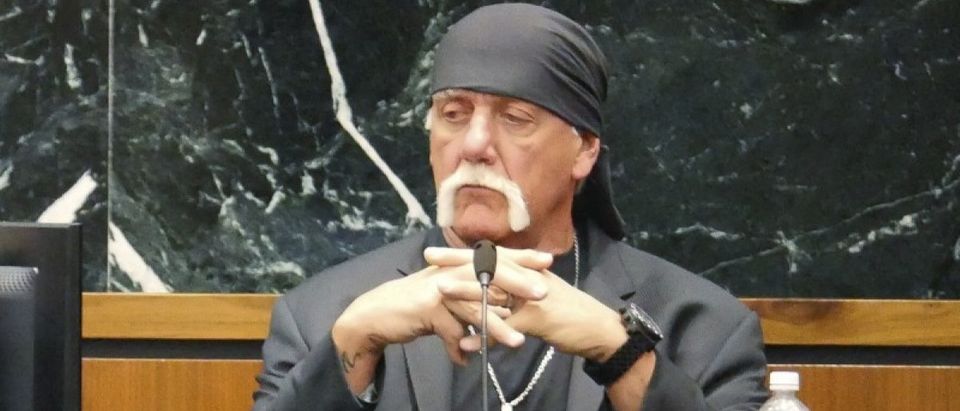The news that pro wrestler Hulk Hogan’s lawsuit against Gawker has been financed by Silicon Valley billionaire Peter Thiel has sparked many opinions, some of them erroneous, some duplicitous, and some deeply shameful.
Before providing examples of each, a little background. In 2007, Valleywag, a now-defunct blog site then owned by Gawker Media, outed Thiel, against his express wishes, as a homosexual. Though he is in fact gay, Thiel was angry about this, and angry too about what he saw, and sees, as Gawker’s bullying journalism in its coverage of Silicon Valley’s tech industry.
For some apparent combination of these reasons, Thiel subsequently offered to covertly pay for Hogan’s legal fees in connection with the wrestler’s invasion of privacy suit against Gawker. The gravamen of Hogan’s suit is that Gawker published online a secretly taped video of Hogan having sex with the wife of a friend of his. At trial the jury awarded Hogan $140 million.
So right off the bat a couple of things are clear: Neither Hogan’s lawsuit nor Thiel’s payment of his legal fees are First Amendment issues, despite allegations to that effect in stories published by such as the New York Times. Indeed, neither are even free speech issues except by the slender argument that, if every rich guy sued the media, it would silence the press.
Hogan’s lawsuit is not a First Amendment issue because 1) it is not marked by any level of government involvement, and 2) it hasn’t been tried as a First Amendment issue but as a privacy issue. And nothing about Thiel’s covert funding of the lawsuit is a First Amendment or free speech issue. As succinctly explained by Eugene Kontorovich in the Washington Post’s Volokh Conspiracy:
Thiel’s conduct would likely have been a tort at common law a century ago. Today it is well within the parameters of third-party involvement in lawsuits. The common law had numerous restrictions on people sponsoring or recruiting others for litigation. The “support of litigation by a stranger” to the case constitutes the common law crime and tort of maintenance; a related prohibition of “champerty” also prohibited similar conduct…
However, these common law doctrines have long since fallen into desuetude. They were gradually eroded by numerous developments, most saliently public interest litigation and the private provision of legal aid to indigents. Public interest and civil rights groups routinely look for plaintiffs and engineer “test cases” to develop legal principles. One of the final blows for the doctrine was the Supreme Court’s decision in NAACP v. Button, holding Virginia’s champerty and maintenance laws violated (emphasis added) the First Amendment, because litigation—and the sponsorship of it—is a vehicle for expressing viewpoints.
None of this, however, has stopped critics from throwing darts at Thiel for his role as the financial enabler of Hogan’s lawsuit. From Jack Shafer, a media reporter for Politico who usually makes sense, comes the simple rant that it is “barbaric” for Thiel to engage in “grudge-settling” through what Shafer characterizes as “shopping for victims by slighted billionaires.”
Much worse is the claim by one Michael Lazerow who, writing in LinkedIn’s Pulse, argues that Thiel violated “core principles of Silicon Valley.” And what are those principles? Trust and transparency. And how has Thiel done this awful thing?
Well, let Lazerow tell you in his own words: “If Peter, Mr. Silicon Valley in popular movies and TV shows, can use his power to destroy personal enemies, is it that far of a stretch to think that any of his companies would do the same? Or any company in Silicon Valley? Maybe or maybe not. But perception is reality. So the question isn’t whether or not they will do it but rather whether or not people think they will do it. That’s all that matters.”
As wanting as is the intellectual quality of much of the criticism of Thiel, the argument that is truly reprehensible belongs to Stuart Karle, a former general counsel of the Wall Street Journal. In an opinion piece published in the Washington Post under the headline “The legal campaign against Gawker has roots in the racist South,” Karle equates Thiel’s bankrolling of Hulk Hogan’s privacy suit with the (ultimately unsuccessful) attempt by some segregationist public officials to sue for libel in media coverage of the civil rights movement.
As Mediaite put it in a withering comment on Karle’s piece: “Some logicians would argue that these are examples of the association fallacy, that Karle’s argument is completely devoid of necessary context, and that a reasonably intelligent six-year-old could poke holes in it. But for all we know, those logicians like dogs, JUST LIKE HITLER.”
One needn’t love Thiel or hate Gawker to see the false and malicious aspects of criticism that is coming Thiel’s way. Worse, this comes at a time when there are real threats to freedom of speech in the United States — things like the FCC’s newfound regulatory authority over the Internet thanks to the net neutrality rules, the politicization of the Supreme Court’s Citizen United decision, and the virulent strain of political correctness on college campuses — that are deserving of, but not receiving, the kind of condemnation that Thiel is getting.
And beyond all this there is the lingering suspicion that what animates many of Thiel’s critics isn’t his grudge-funding against Gawker, nor the far-fetched fear that third-party financial support of lawsuits against media companies will be replicated on a grand and fatal scale, but something much simpler—his politics. In the land of PC-inspired groupthink, Peter Thiel’s real offense may be Making Waves While Libertarian.
Patrick Maines is president of The Media Institute. The views expressed are those of Maines alone and not of the Institute’s board, advisory councils, or contributors.


